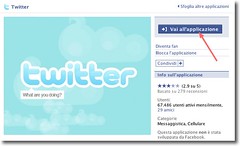 One of the great problems of the information age has been the disruption of local communities. During the last generation, people were able to rely on their local community to help them sustain their businesses. Accountants were able to order a pint of Guinness at their local Irish pub and pick up a new tax client before the time the beer has settled. The local butcher could rely on his buddy’s from his softball team to pick up osso buco at his store.
One of the great problems of the information age has been the disruption of local communities. During the last generation, people were able to rely on their local community to help them sustain their businesses. Accountants were able to order a pint of Guinness at their local Irish pub and pick up a new tax client before the time the beer has settled. The local butcher could rely on his buddy’s from his softball team to pick up osso buco at his store.
Now the local accountant has been replaced by H&R Block and you buy your meat in shrink wrapped plastic on environmentally unfriendly styrofoam at Stop and Shop. Even the local watering hole has been replaced by a TGI Fridays. In the process, our local communities are being destroyed.
You may be paying a bit less in the short term, but there is a price. Our lives are missing the interaction of oral conversations that last more than a couple of minutes. These conversations are important not only financially, but socially. If you are a financially planner, the local accountant would naturally refer you business. The butcher probably knows about the best poker night in town.
Now that our local communities have been upended, many of us are turning to socially networking to re-build our communities. Unfortunately, social networking sites such as Twitter do not allow for many deep meaningful interactions that lead to building communities very quickly.
A community looks to each other to grow the relationship and to interact. According to Chris Brogan, community happens when you feel that you are among like-minded people and when you feel that your contributions matter.? Communities empower users of products or services, or people with like-minded interests to interact.
You may not realize it, but who you buy from really matters. Spend a few moments and think about the impact of what you purchase.
Yesterday I bought a gift for a for a two year old girl at the Dolphin Bookshop, in my hometown of Port Washington, New York rather than Barnes and Noble. The purchase supports a local independent bookstore in the community. I love technology, but don’t expect Kindle stores showing up on Main Street anytime soon.
The next time you are wondering why someone from your community hasn’t bought something from you, you should think what have you done lately to build our community.
What do you think? What are you doing to help build your community? Have you been able to use social networking sites to build a community?
![Reblog this post [with Zemanta]](http://img.zemanta.com/reblog_e.png?x-id=02d155f7-8e20-40be-847e-7c1f55a9587a)

![Reblog this post [with Zemanta]](http://img.zemanta.com/reblog_e.png?x-id=dc3f8986-4cf2-453f-907e-11506e2db19b)

![Reblog this post [with Zemanta]](http://img.zemanta.com/reblog_e.png?x-id=f8eee97f-2279-45b1-8b91-a9900d372ef9)
.jpg)

![Reblog this post [with Zemanta]](http://img.zemanta.com/reblog_e.png?x-id=f3103896-576c-4762-82d2-b288c7af23a7)

![Reblog this post [with Zemanta]](http://img.zemanta.com/reblog_e.png?x-id=aecd1d76-8bc8-445a-b286-df8821fd7831)
